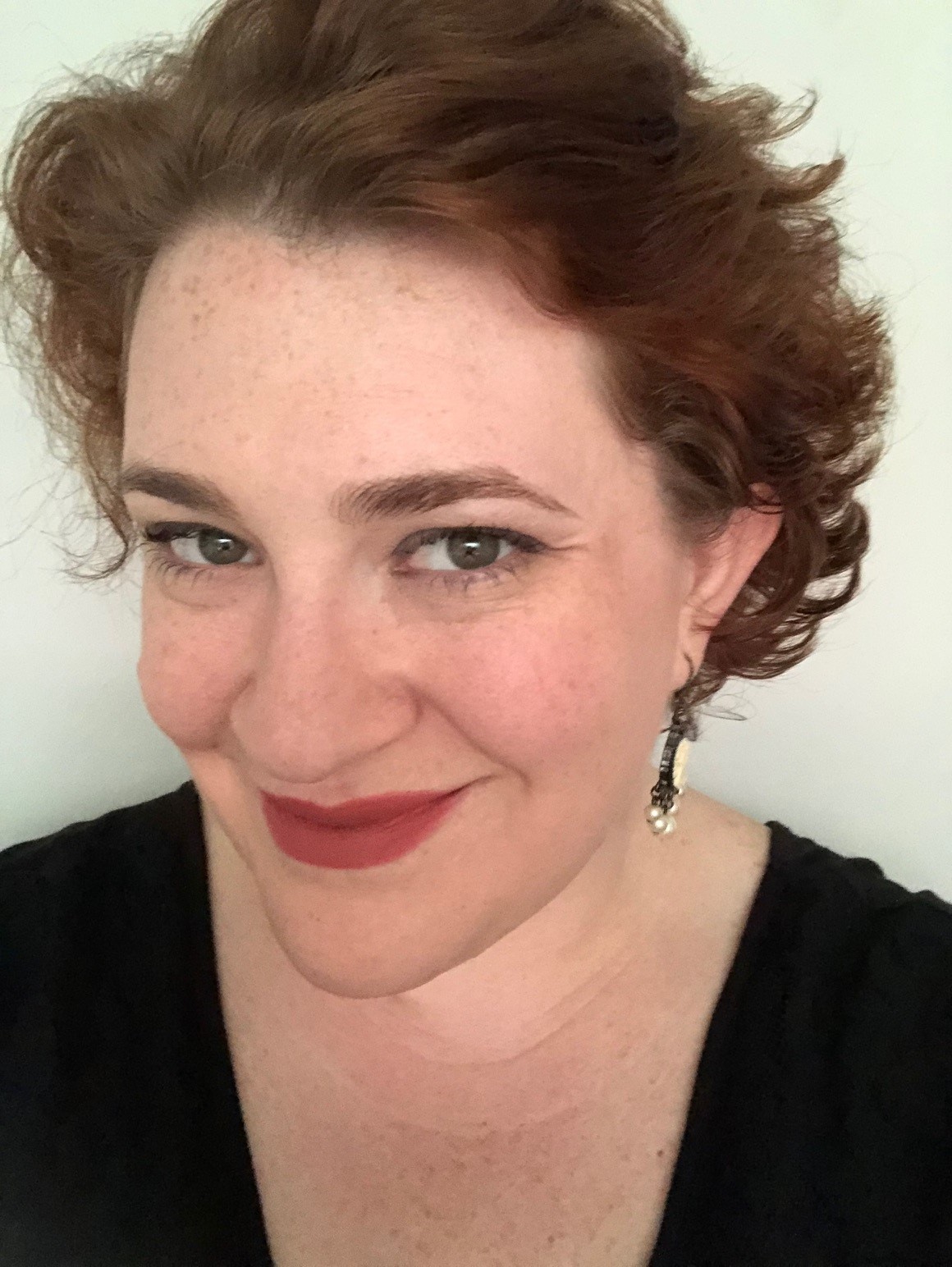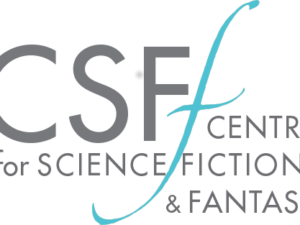
This week’s PhD Student Profile is of Ginger Thomason.
Tell us about your research!
Food, fantastic food.
Lembas and lamb stew and lemon cakes.
If you’re in a mood,
Why not Garglelasters and gagh?
All the banquets throughout,
Unexpected parties, Red Weddings,
and Halloween trolls about (the dungeons…)
Just picture a great big dragon joint…
With the leftovers ragu’d or stewed…
Oh, food
Enchanting food
Bespelled food
Food, fantastic food!
My research is focused on finding the cultural nexus points between our primary world and the constructed worlds of SFF through food imagery, culture, and history.
My PhD is a novel titled How to Cook a Dragon. It centres on a cooking competition like Masterchef in an environment characteristic of a Tolkienesque secondary world, but subverting and lampshading many tropes of this recognisable sub-genre. My academic research is focused on food in SFF, more specifically how our food cultures and diets are reflected in the world-building of my story and in the stories of other SFF authors.
Food has long been a sociological measurement of the integration between one culture and another. I hope to use that idea to show how food imagery strengthens narrative for readers, acting as a bridge between imaginations.
What was your introduction to SFF?/How did you come to SFF?
SFF has always been a part of my life. Legend has it that when my dad got home from work on Sundays back in 1987, he’d sit infant me down with him to watch the newest Star Trek: The Next Generation episode. As a kid, I watched movies such as Beetlejuice, Mary Poppins, Hook, Aladdin, Teenage Mutant Ninja Turtles, and Keaton’s Batman over and over. I devoured the Animorphs series when they first came out, along with anything having to do with vampires in the children’s section of my library. By the time I reached adolescence, and discovered Buffy, Angel, and Charmed, and the Lord of the Rings movies, there was no way to separate my creativity from SFF.
Like many genre writers and enthusiasts, I was told my love of SFF wasn’t good enough more than once. I drifted away from the genre in my early 20’s as I explored literary fiction with a lens on religion and belief. My MFA program was very “literary,” but my love of fantasy fiction and writing was rekindled during my coursework. One of my MFA advisors told me to keep going with genre writing. “Why not” fantasy fiction she asked? And that was that for me. I returned to working on a high fantasy novel that just grew and grew in my head.
What does SFF do for you that other genres do not?
I think breaking with so-called “realism” allows for a clearer lens on the human condition. Sometimes I think a lot of “literary” fiction is actually bogged down with “reality,” or at least it’s current publishing incarnations and trends of the last decade or so. I also don’t think it’s a coincidence that seventeen of the top twenty grossing films are SFF, and the popularity of franchises such as Harry Potter, The Hunger Games, and Game of Thrones and the rekindling of Star Trek and Star Wars shows that our genre is having its validation moment.
SFF gives us more permission to be human than other fiction does. It is more forgiving in showing us faces that are not our own, whether they be alien, AI, or Hobbit. It also fosters an environment where women, POC, LGBTQ+, disabled, and others outside the “norm” can be heroes of their own stories and the driving forces of a narrative without falling to the trap of being an “inspirational” story for the so-called average reader. Food in SFF does this by introducing readers to other cultures and flavors. Books such as Laura Esquivel’s Like Water for Chocolate, Nnedi Okorafor’s Akata Witch, and movies such as Ratatouille familiarise audiences with different food cultures and a love of food that ignites the “human” in these stories. It makes them even realer than most realism could ever hope to be.
Where do you see SFF going in the next 10 years? 20 Years?
Like many, I think the future of SFF, and fiction in general, is made even more glorious by diversity. No one wants to see the exact same story over and over; tropes can be tools or keys to unlocking this while furthering more diverse and #OwnVoices narratives. It’s what stagnated fantasy in the ’80’s with the same “chosen one” narrative used so much that it became a cliché.
I don’t think there’s such a thing as forced diversity; I say this as a bisexual cis-woman who grew up in the very conservative state of Utah. The more diverse books and movies I’ve watched, the more human I feel I have become, the more empathy and understanding I’ve gained, and the less alone I feel.
What overlooked or lesser known works would you recommend to readers and academics and why?
This is something I struggle with for my PhD, I feel like there’s possibly too much out there and this is actually a good thing. The surge of ebooks and fanfiction have their place in helping readers discover the wonder of our genre. I barely even know where to begin.
I do have a personal “Highly Advised Mandatory Reading and Viewing” list that includes the following:
- Star Trek: The Next Generation episodes “The Inner Light,” “Ship in a Bottle,” and “Darmok,” and the film Star Trek: First Contact. All of these encapsulate the Star Trek brand’s notion of “what it means to be human and where are we going?”
- Sabriel, Lirael, and Abhorsen by Garth Nix are three superb YA/NA books that show a male author getting it right in how he writes female protagonists.
- I’ve recently become a huge fan of Leigh Bardugo and John Scalzi and think they’re paving the way for future SFF to be particularly fun, human, and diverse.
- American Gods by Neil Gaiman, The Long Way to a Small, Angry Planet by Becky Chambers, “The Wayward Children” series by Seanan McGuire, and The Handmaid’s Tale by Margaret Atwood are books that have been overlooked for their food imagery and its significance in their narratives, which I plan to correct in my postgraduate work.
For more information about Ginger and her publications, you can visit her bio on the Members page.
1 Comment
-
Just seen you in the Chase. When will your book be available?



